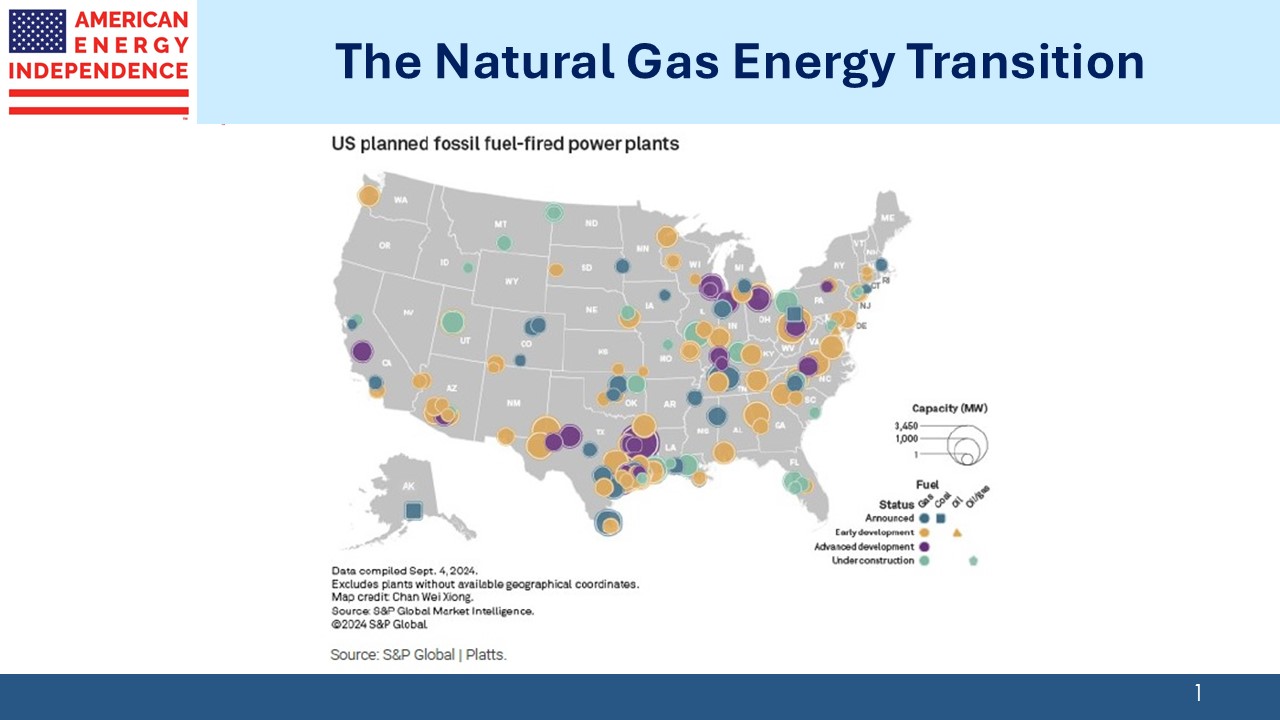An Energy Secretary With Relevant Experience
Sitting next to me at Newark airport on Monday while I waited to board an airplane was an FT reporter. I know this because he made a phone call to discuss the Trump appointments “on background” with a source who, based on one side of the conversation, had recently been in Mar-a-Lago. Chris Wright, Trump’s soon-to-be Department of Energy (DoE) head, was the topic. Yes, the source confirmed, the pause on LNG permits would be lifted as a first order of business. A lighter regulatory touch should be expected.
None of this is news by now, but a DoE head drawn from the energy sector is a remarkably rare event. Jennifer Granholm, the current head, and ignominious architect of the LNG pause, is a former governor of Michigan and Harvard law graduate with no industry expertise or nuclear background.
The DoE website informs that the National Nuclear Security Administration (NNSA) “is a semi-autonomous Department of Energy agency responsible for enhancing national security through the military application of nuclear science.” Oversight of our nuclear deterrence is a not widely appreciated but vital DoE responsibility.
Ernest Moniz, who led the DoE 2013-17 and his predecessor Steven Chu (2009-13) both under Obama, at least shared a background in science. But the DoE hasn’t had an executive from the energy sector since at least 1998.
Incoming DoE head Chris Wright is CEO of Liberty Energy. Their website includes a lengthy presentation called Bettering Human Lives which was worth reading even before Wright’s appointment. It provides a robust and unapologetic justification for being in the hydrocarbon business, some of which we recently highlighted (see Trump Energizes The Pipeline Sector).
Lifting people out of energy poverty so they can cook with propane or natural gas rather than animal dung is closer to doing God’s work than carpeting open spaces with solar panels and windmills. Chris Wright is no climate denier but will approach global warming as one of several huge challenges along with malnutrition, access to clean water, air pollution, endemic diseases and human rights.
Northern India and parts of Pakistan have endured severe smog in recent days, caused by pollution from burning coal. Schools have closed and residents of affected areas have been advised to stay indoors. They are potential beneficiaries of increased US exports of LNG, since natural gas generates around half the CO2 emissions of coal per unit of energy output. The Sierra Club and other far left progressives have nothing useful to say to these people.
Bettering Human Lives is found under the ESG section of Liberty’s website, unashamedly claiming the moniker with better justification than most. Energy investors have correctly responded with enthusiasm to the likely path US energy policy is about to follow.
Increased power demand from data centers has provided support for pipeline stocks this year, since natural gas will be the main source of additional electricity. The number of gas-fired power plants either announced or in development duly rose to 148 in September, up from 133 in April according to S&P Global Platts.
The map shows most of them in a wide swathe across Texas and into the northeast, in the general area of natural gas production. Although labeled “fossil fuel-fired power plants” they are all natural gas. Coal-burning power plants are being phased out in the US, with the last large one built back in 2013.
Valuations remain attractive, with midstream offering yields of 5% well covered by cashflow. Payouts are rising, companies are buying back stock, leverage is down and valuations still attractive. In our opinion it’s hard to find anything negative to say about the sector’s prospects.
NextDecade (NEXT) had some good news recently, albeit somewhat legally obscure. The U.S. Court of Appeals for the D.C. Circuit ruled that the Council on Environmental Quality (CEQ) wasn’t empowered to issue regulations related to the National Environmental Policy Act. If the CEQ wasn’t top of mind for you, well you’re not alone.
In the summer a panel of the DC Circuit vacated the FERC permit for the construction of NEXT’s Rio Grande’s LNG terminal (see Sierra Club Shoots Itself In The Foot). As a result of the CEQ ruling, NEXT has filed a petition arguing that their permit was wrongly vacated. The entire process is obviously generating healthy legal fees, but more importantly shows signs of heading towards a positive resolution.
Perhaps our incoming DoE head will conclude that the Sierra Club is creating more problems and few solutions with their frivolous lawsuits. It’s time someone took them on.
We have two have funds that seek to profit from this environment:
